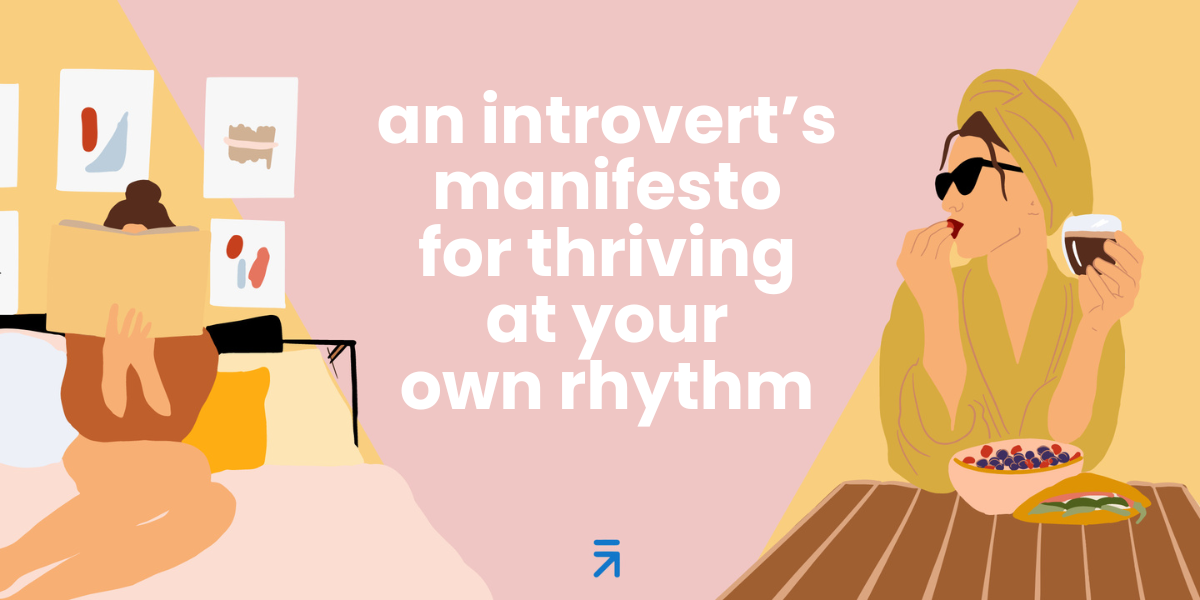Life’s daily march is often a complex ballet, each movement precisely timed to the unyielding tempo of duties and time constraints. In this orchestrated routine, stress frequently claims the spotlight, dimming the light of our mental and physical health. However, within this concert of challenges, there is a harmonious sanctuary—a cadence of comfort discovered in the gentle arms of music. This piece ventures into the symphonic dance between tune and thought, shedding light on how music can be an influential maestro, leading us from a state of unrest to one of serene repose.
The Physiological Response to Music

Music has long been recognized for its powerful influence on our emotions and mental well-being. It has the ability to transport us to another world, evoke a range of feelings, and even provide relief from stress and anxiety. When it comes to stress relief and anxiety reduction, there is a growing body of evidence supporting the positive impact of music on our physiological response.
Numerous studies have shown that listening to music can have a direct effect on our autonomic nervous system, which controls our body's involuntary functions such as heart rate, blood pressure, and breathing. When we are stressed or anxious, these physiological responses can become dysregulated, leading to a cascade of negative effects on our overall health.
However, research has shown that certain types of music, particularly those with slow tempos, low pitch, and calming melodies, can help to counteract these detrimental effects. In fact, music therapy has been widely used as a complementary treatment for individuals suffering from stress-related disorders, anxiety, and even post-traumatic stress disorder.
One reason why music has such a profound impact on our physiology is its ability to engage the limbic system, the part of the brain responsible for processing emotions. When we listen to music that is calming and soothing, it stimulates the release of neurotransmitters such as dopamine and serotonin, which are associated with feelings of relaxation and pleasure. This activation of the limbic system can help to reduce anxiety and promote a sense of calmness.
Furthermore, music has been found to help regulate heart rate and blood pressure levels. Studies have shown that when individuals listen to music that they find enjoyable, their heart rate tends to slow down, and blood pressure decreases. This physiological response is particularly beneficial for individuals experiencing stress and anxiety, as it helps to counteract the body's fight-or-flight response, promoting relaxation and a sense of well-being.
Moreover, music has the power to distract us from our inner worries and intrusive thoughts. When we are engrossed in listening to music, our focus is shifted away from our stressors and redirected towards the pleasurable sensation of the music. This diversion can interrupt the negative thought patterns associated with anxiety and stress, providing temporary respite and allowing us to regain a sense of control and tranquility.
The Emotional Benefits of Music Therapy

Research has consistently shown that listening to music can significantly reduce stress levels and alleviate anxiety symptoms. When we are stressed or anxious, our bodies go into a state of arousal, characterized by increased heart rate, elevated blood pressure, and a rush of stress hormones. However, studies have found that listening to calming and soothing music can counteract these physiological responses, promoting a state of relaxation and calmness.
The reason behind music's therapeutic power lies in its ability to directly influence our emotions. Certain types of music, such as classical, instrumental, or nature sounds, have been found to have a particularly soothing effect on the mind and body. The slow tempo, gentle melodies, and repetitive patterns found in this genre of music can help slow down our heart rate and breathing, inducing a state of relaxation.
Furthermore, music can serve as a distraction from our worries and anxieties. Engaging with music provides a focused and absorbing experience, redirecting our attention away from negative thoughts and emotions. The lyrics, melodies, and rhythms of a favorite song can transport us to a different mental space, offering a temporary respite from our daily troubles.
Music therapy is not limited to passive listening; it also involves active participation in creating and performing music. Engaging in music-making activities has been found to be particularly effective in reducing stress and anxiety. Playing an instrument, singing, or even dancing can provide an outlet for the expression of emotions and serve as a cathartic release.
Moreover, music therapy offers a safe and non-judgmental space for individuals to explore and process their emotions. Through the guidance of a trained music therapist, clients can use music as a medium to express and communicate their feelings, even when words fail them. This process of engaging with music on an emotional level can be profoundly healing and validating.
The Cognitive Effects of Music

Listening to music can have a profound impact on our brain and cognitive functions. One of the key ways music affects our cognition is by changing our mood. When we listen to music that we enjoy or find soothing, it can enhance our mood and reduce stress and anxiety levels. This is especially true for individuals who struggle with mental health issues such as depression or anxiety disorders.
Moreover, music has the ability to distract our minds from negative thoughts and ruminations. It can provide an escape from the daily stressors and pressures of life, allowing our brains to relax and recharge. This distraction can be particularly beneficial for those experiencing symptoms of anxiety or high levels of stress, as it gives them a temporary break from their worries.
Additionally, music has been found to improve focus and concentration. By engaging with music, whether through active listening or playing a musical instrument, our brain is stimulated and challenged. This mental stimulation can lead to enhanced cognitive skills and improved attention span. It is no wonder that many people find it easier to concentrate on tasks such as studying or working while listening to music in the background.
Furthermore, certain types of music, such as classical or instrumental tracks, have been shown to promote relaxation and even induce a sense of calmness. These calming effects can have a transformative impact on our cognitive abilities, allowing us to think more clearly and make sound decisions. Music's ability to induce a relaxed state also enhances problem-solving skills and creative thinking, as our brain is no longer preoccupied with stress or anxiety.
It is important to note that the cognitive effects of music can vary from person to person. While some individuals may find certain genres or tunes to be soothing and stress-relieving, others might have a different response. Therefore, it is essential for each individual to experiment with different types of music and find what works best for their unique cognitive and emotional needs.
How to Make Music Your BFF in Relieving Stress

Music’s role as a stress reliever is multifaceted and can be tailored to individual preferences and needs. To begin, it’s important to create an environment conducive to relaxation. This might involve dimming the lights, burning some incense, or ensuring a comfortable temperature in the room. Once the setting is prepared, choose a variety of music that you find soothing. This could include genres such as classical, jazz, ambient, or even nature sounds like rain or ocean waves. The tempo of the music is also crucial; slower tempos can be particularly effective in slowing down the mind and body, leading to a state of tranquility.
When you’re settled in your space with your chosen music, take a few deep breaths to center yourself. As the music begins, concentrate on different aspects of the sound—notice the instruments, the harmony, and any emotions or memories the music brings up for you. Engage in deep listening, which means giving the music your full attention without distraction. You might find it helpful to practice mindfulness or meditation techniques as you listen, focusing on the present moment and observing your thoughts and feelings without judgment.
In addition to passive listening, active participation in music can be a powerful stress reliever. This could involve playing an instrument, singing, or even dancing to the music. Engaging with music actively allows for a creative outlet and can be a cathartic experience, releasing pent-up emotions and stress. Furthermore, sharing the experience with others, whether it’s attending a live concert or having a sing-along with friends, can enhance the stress-relieving benefits of music through social connection and shared enjoyment.
Finally, consider incorporating music into your daily routines. Play calming music during your commute, use upbeat songs to boost your mood during exercise, or unwind with your favorite album after a long day. By integrating music into various aspects of your life, you can create a personal soundtrack that supports your mental health and well-being, providing a refuge from the stresses of everyday life. Remember, the key to using music as a stress reliever is to be intentional and mindful about your listening habits, allowing the rhythms and melodies to soothe your mind and rejuvenate your spirit.
@honestttsreviews The migranes don’t stand a chance #eyemassager #migranerelief #renpho #renphoeyemassager #renphoeyeris1 ♬ Relaxed - MC Mablo Dos Paredões
The RENPHO Eyeris 1 Eye Massager is a state-of-the-art device designed to provide a spa-like experience in the comfort of your home. It features a compression massager that gently applies pressure around the eyes, coupled with built-in heating pads that can reach up to 107 degrees, offering a soothing warmth that can help alleviate eye strain and promote relaxation. The massager operates with an oscillating motion around acupressure points, which not only aids in reducing puffiness around the eyes but also contributes to a deeper state of calm.
One of the unique aspects of the RENPHO Eyeris 1 is its integration with music. It comes with Bluetooth capabilities, allowing users to stream their favorite playlists or guided meditations directly through the device. This combination of gentle massage and personalized music can significantly enhance the stress-relief experience. Music has been shown to lower heart rate and cortisol levels, the body’s stress hormone, while also releasing endorphins to improve overall well-being. Therefore, when using the RENPHO Eyeris 1 Eye Massager, the auditory stimulation works in tandem with the physical massage to create a multi-sensory relaxation experience that can help reduce stress, promote better sleep, and improve mental health.
Renpho Health Tips
-

RENPHO Study Unveils the Empowering Influence of Music in Workout Playlists
October 22, 2023
Read more >
-

Music Matters: How to Use Music to Enhance Your Workouts and Focus
January 14, 2024
Read more >
-

An Introvert's Manifesto for Thriving at Your Own Rhythm
April 11, 2024
Read more >
-

The Wellness of Waiting: How Delayed Gratification Can Lead to Healthier Choices
April 15, 2024
Read more >
-

Creative Outlets: Using Art to Express and Relieve Stress
April 14, 2024
Read more >




































